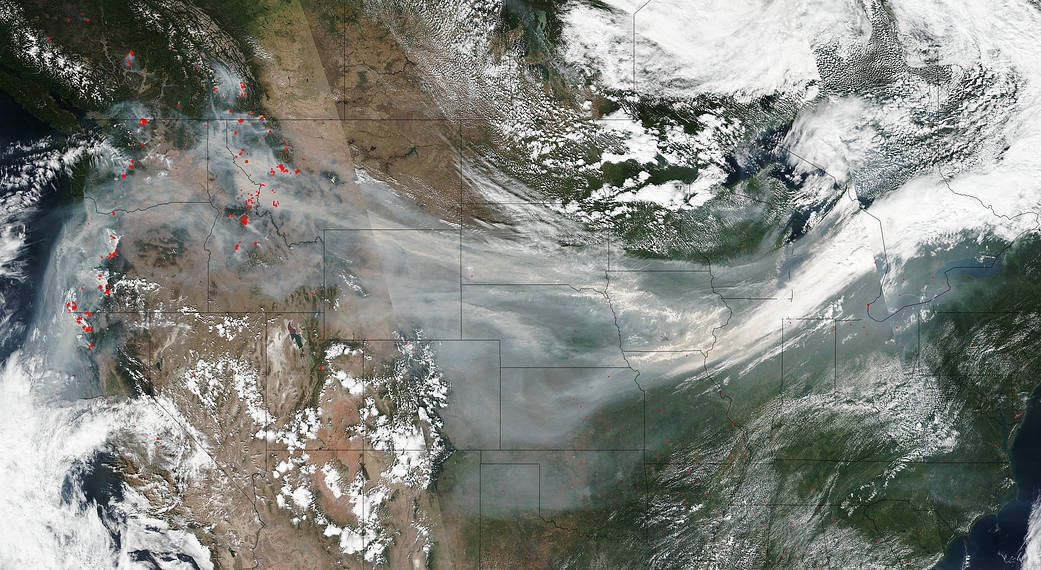STEM
Climate Change
Edward Hessler
The planet has passed the one degree Celsius increase and seems on a headlong path to hit the two degree Celsius increase--the aim of the Paris climate agreement of 2015, the one that on June 1, 2017, President Trump announced that the United States would cease all participation. Exceeding a two degree Celsius increase is viewed by climate scientists as a prescription for disaster. A planet where temperatures exceed three degree Celsius, four degree Celsius and five degree Celsius are horrifying to contemplate. In such temperature regimes, large parts of the world would not be habitable. And at a five degrees Celsius increase, the apocalypse is a fair descriptor.
A 60+-page book doesn't seem particularly long except when it is on a vertical screen so I haven't read as carefully and certainly not as easily, as I would were it horizonal, "Losing Earth: The Decade We Almost Stopped Climate Change," in the August 1, 2018 issue of The New York Times Magazine. Author Nathaniel Rich capsulizes the period, 1979 to 1989, as the "decisive decade" during which the climate crisis could have been solved.
Rich's report is divided into two parts, 1979 - 1982 and 1983 - 1989.
But first why this decade and not some other? I cherry pick a few sentences from Rich's reporting to support why he chose these to book-end his report.
Nearly everything we understand about global waraming was understood in 1979. ... (T)he main scientific questions were settled beyond debate. ... A broad international consensus had settled on a solution: a globa treaty to curb carbon emissions. The idea began to coalesce as early as February 1979, at the first World Climate Conference in Geneva, when scientists from 50 nations agree unanimously that it was "urgently necessary" to act. Four months later, at the Group of 7 meeting in Tokyo, the leaders of the world's seven wealthiest nations signed a statement resolving to reduce carbon emissions. ... The scientists summoned by Jule Charney to judge the fate of civilization arrived on July 23, 1979, with their wives, children and weekend bags at a three-story mansion in Woods Hole, on the southwestern spur of Cape Cod. They would review all the available science and decide whether the White House should take seriously Gordon MacDonald’s prediction of a climate apocalypse.
Ten years later (1989), the first major diplomatic meeting to approve the framework for a binding treaty was called in the Netherlands. Delegates from more than 60 nations attended, with the goal of establishing a global summit meeting to be held about a year later. Among the scientists and world leaders, the sentiment was unanimous: Action had to be taken, and the United States would need to lead. It didn't.
In Part One is found a fascinating history of that decade (It is compelling reading and Rich knows his way with words and ideas.), stunning photographs and videos by George Steinmetz, a curriculum guide developed by the Pulitzer Foundation, and an author's prologue and epilogue. I had no idea how ignorant I was of important parts of the history of global climate change. history. I had never heard of Rafe Pomerance, Gordon J. F. MacDonald, and Jule Charney. While I had heard of the JASONS, I had no idea of their early work on global warming.
Part Two is about why we didn't act and this is the most contentious section of Rich's essay. In the prologue you will note that the two most "common boogeymen," the fossil fuel industry and the Republican party are given a pass, almost a complete pass. Rich's main culprit is us, Homo sapiens. This surprised me and was contrary to what I believe based on evidence. I am not a student of governmental machinations and do not carefully track legislation and read hearings. I'd recently read a history of the environmental record of our U. S. presidents. Contemporary Republican presidents/administration are not known for their environmental record. I was aware of many reports on the fossil fuel's industry attempts at slowing and/or blocking policies on climate change. And about us, sure we have a role but we are not by any stretch of the imagination equal partners/players.

One of the things I do when I read a report like this is to do a search look to others who know more about climate change and its history than me. This includes scientists and writers whose beat is the environment, writers who are respected and who are serious-minded. I turned to three writers and one resource.
Joe Romm, writing for ThinkProgress minces no words. "Indeed, the article's key assertion that 'we almost stopped climate change' in the decade from 1979 to 1989 is simply untrue and ahistorical. The world didn't even gather to seriously address climate change until the June 1992 Rio Earth Summit--and that did not even lead to any binding greenhouse gas reduction targets."
With respect to Rich's assertion that humans "are incapable of sacrificing present convenience to forestall a penalty imposed on future generations," Romm notes that this does not implicate the key actors. "The fact is that during the times the United States was seriously contemplating action to address climate change, those efforts were thwarted again and again by the fossil fuel industry and its multi-decade disinformation campaign, as well as key Republicans dating back to the Reagan administration."
Another writer I depend on is The Atlantic's Robinson Meyer, who writes that "there are too many counterfactuals," including many in Rich's reporting. Meyer fills in the details on the fossil fuel side, details which have been widely reported. In writing about humanity's hubris in heating the planet, Meyer notes that It is not a risible idea: Perhaps (as Rich later speculates) climate change really is impossible for our mammalian minds to comprehend, its timescales too grand for our two- and four-year election cycles.
Ron Meador who writes for MinnPost has written a longer piece on the pushback to Rich's report. I always find Meador a wise reporter. This is how he economically frames the nature of the pushback. "Some (critics) point plausibly, to factual errors or obvious oversights. Others, inclined to blame most of our foot-dragging on Republicans and fossil-fuel interests, think Rich blames them too little. But the most substantial, and troubling, assert that the biggest, boldest conclusions of 'Losing Earth' reach so far beyond the supporting evidence that they become non sequiturs; that the problem is not with the facts but with their facile deployment."
Meador makes important comments on the difference between policy life then and now. He also includes a quote, a comment made by a congressional aide to Pomerance that struck me when I read Rich's report. It was for me a money quote and is about the nature of problems. I give you the pleasure of finding it either in Rich's report or in Meador's essay (it is near the end).
Meador makes important comments on the difference between policy life then and now. He also includes a quote, a comment made by a congressional aide to Pomerance that struck me when I read Rich's report. It was for me a money quote and is about the nature of problems. I give you the pleasure of finding it either in Rich's report or in Meador's essay (it is near the end).
Rich's comment on the science of global climate change in the Epilogue is one to keep in mind especially about the science."Ken Caldeira, a climate scientist at the Carnegie Institution for Science in Stanford, Calif., has a habit of asking new graduate students to name the largest fundamental breakthrough in climate physics since 1979. It's a trick question. There has been no breakthrough. As with any mature scientific discipline, there is only refinement. The computer models grow more precise; the regional analyses sharpen; estimates solidify into observational data. Where there have been inaccuracies, they have tended to be in the direction of understatement. Caldeira and a colleague recently published a paper in Nature finding that the world is warming more quickly than most climate models predict. The toughest emissions reductions now being proposed, even by the most committed nations, will probably fail to achieve 'any given global temperature stabilization target."

And finally RealClimate, a blog about climate by real scientists. Editor Gavin Schmidt (a renowned climate modeler) wrote that since the article puts the blame for this on “human nature”, rather than any actual humans, extensive Twitter discussion ensues…. He was on vacation, hadn't read it completely so he linked readers to commentary he found interesting and opened it up for comments which so far has led to 132). He noted that he might respond later (he hasn't insofar as I've been able to find). The commentary Schmidt links is critical of the essay and includes comments from well known climate scientists. Schmidt reminded readers "that a lot of people read the NY Times magazine (far more than follow any climate scientists on Twitter or Facebook...." This makes me shiver.
I would not use the curriculum materials.

And finally RealClimate, a blog about climate by real scientists. Editor Gavin Schmidt (a renowned climate modeler) wrote that since the article puts the blame for this on “human nature”, rather than any actual humans, extensive Twitter discussion ensues…. He was on vacation, hadn't read it completely so he linked readers to commentary he found interesting and opened it up for comments which so far has led to 132). He noted that he might respond later (he hasn't insofar as I've been able to find). The commentary Schmidt links is critical of the essay and includes comments from well known climate scientists. Schmidt reminded readers "that a lot of people read the NY Times magazine (far more than follow any climate scientists on Twitter or Facebook...." This makes me shiver.
I would not use the curriculum materials.

 CGEE Student Voice
CGEE Student Voice
No comments:
Post a Comment